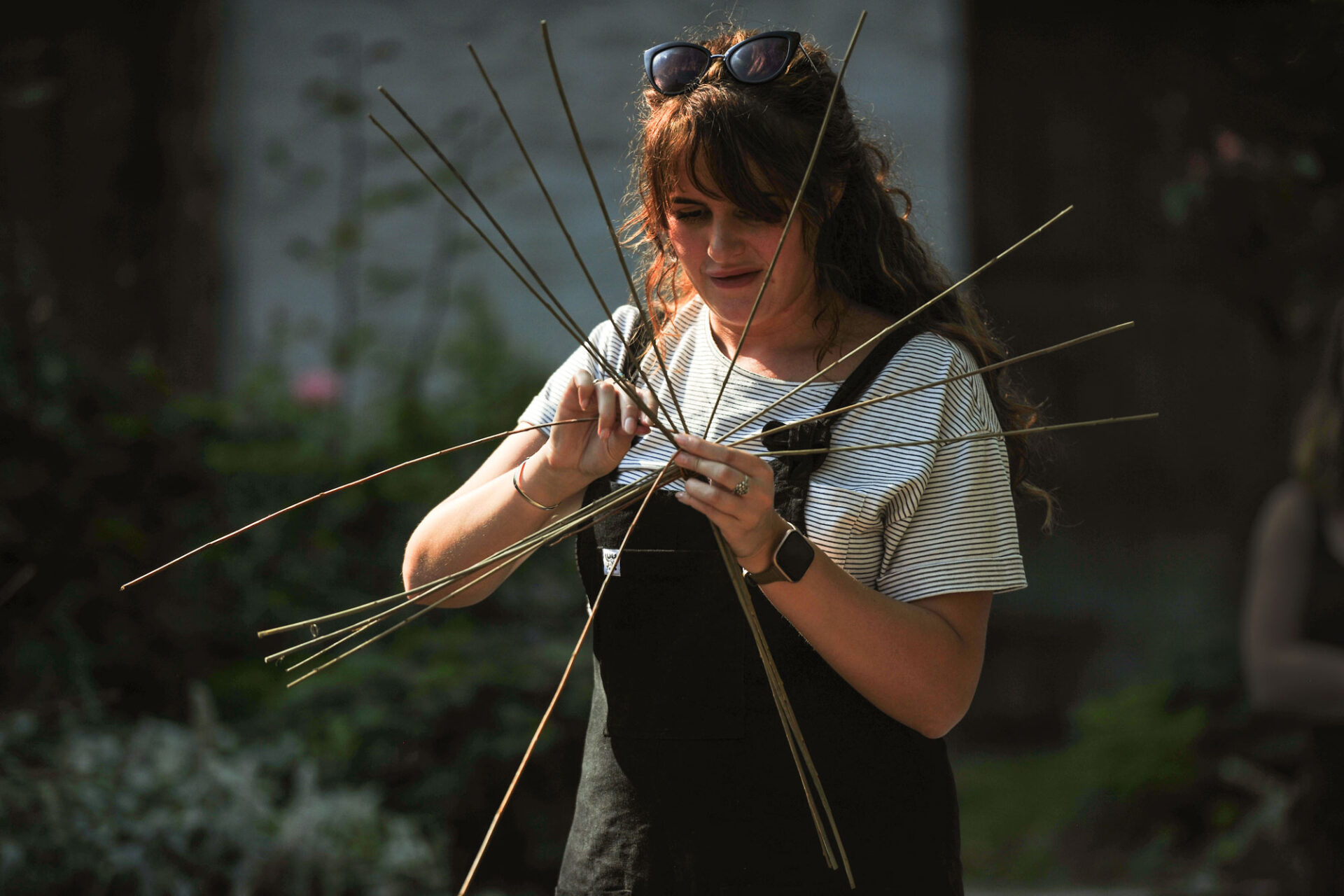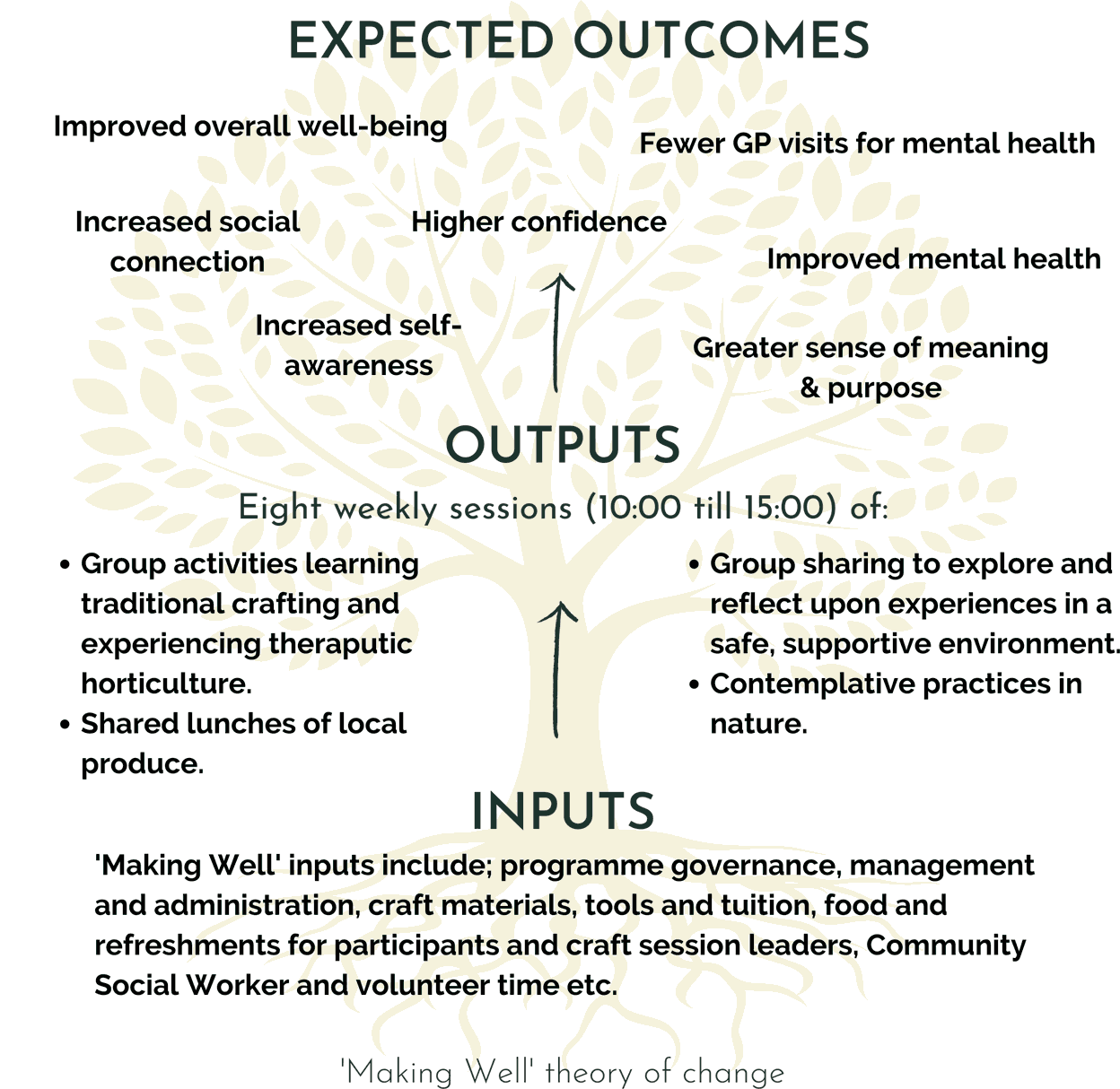Flora
Horticulture, hedge-laying, and forestry
The Fathom Trust creates opportunities for individuals to learn to live deeply, in harmony with ourselves, each other, and our natural habitat.
Neurobiological studies demonstrate the link between bodily awareness and emotion regulation. Both traditional craft-making and conservation require bodily engagement and mental focus and can be transformative for those suffering mental illness.
By creating environments in which people can learn to focus on practical tasks that are mentally relaxing, we can teach people how to re-evaluate our relationship with the natural world and to discover our place in it.

The impact of mental illness on society is profound. It is the single largest cause of disability in the UK and costs the UK workforce 70 million days each year at a cost of £2.4bn.
Three-quarters of adult mental illness starts in childhood. Reports of child and adolescent mental illness are increasing but the treatments available are insufficient to meet either the volume or complexity of the demand. For example, approximately 70% of depressed patients in UK primary care are prescribed antidepressant medication; however, adherence may be as low as one third.
Horticulture, hedge-laying, and forestry
Pottery, dry stone walling, and outdoor adventure
Bread making, foraging, and fruit picking
Animal-assisted therapy and bee keeping
Spoon carving, furniture making, and basketry
Felting, weaving, embroidery, and leatherwork
Traditional craft-making and conservation require bodily engagement and mental focus and can be transformative for those suffering mental illness.
There is an increasing evidence base to support the therapeutic benefits of ‘green care’ whilst mounting evidence describes how bodily action is an essential component of both our cognitive and affective appraisal of the world around us.
After a year of being confined to home and deprived of physical touch, come outside and reach out and embrace all the natural world has to offer.
What we do
